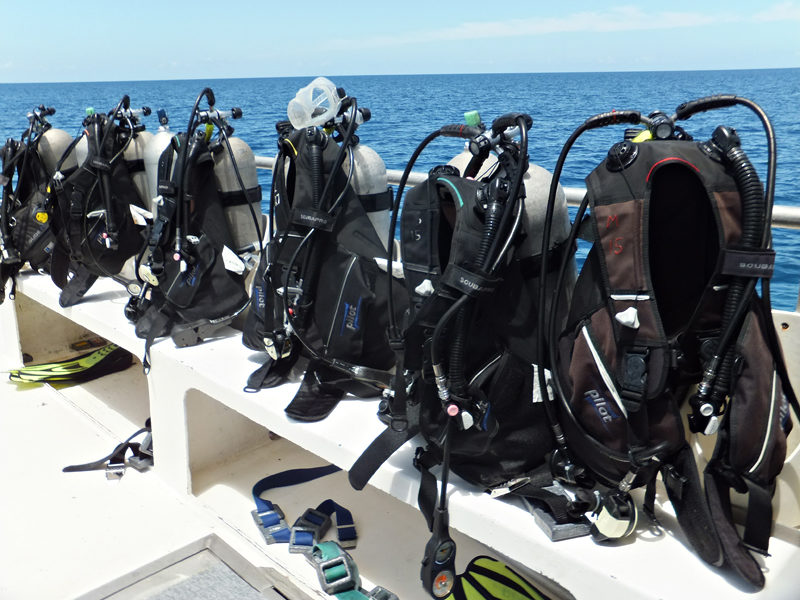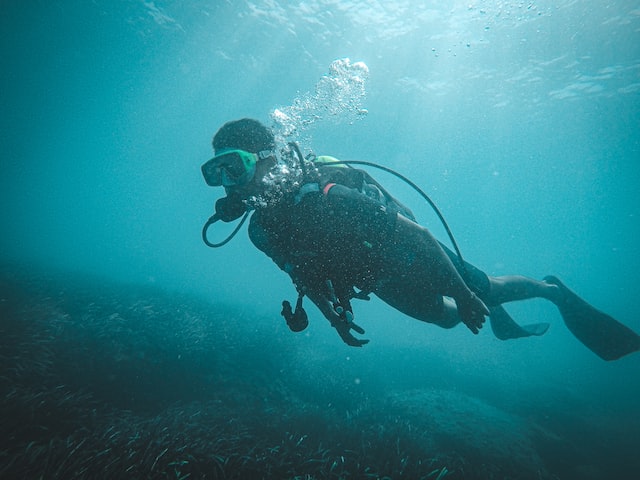Scuba diving is an exciting and one-of-a-kind way to explore the underwater world. The weightlessness of diving, combined with the mesmerizing beauty of marine life, can produce an experience unlike any other. As a scuba diver, however, proper breathing is critical for both safety and enjoyment. This article will delve into the art of scuba diving breathing and provide tips and techniques to help you master this skill.
Why Proper Breathing is Important while Scuba Diving
Scuba diving breathing differs from breathing on land. The air you breathe is delivered via a regulator, which ensures that the air you breathe is at the same pressure as the surrounding water. Holding your breath while diving causes the air in your lungs to expand as you ascend and contract as you descend, potentially causing lung injury. Furthermore, the equipment you wear can be bulky and heavy, making breathing more difficult.
Proper breathing techniques are critical for diving safety. A controlled and relaxed breath allows you to conserve air, which is especially important when diving at depth. You use less air when you breathe deeply and calmly, and you’re less likely to experience shortness of breath or a panic attack. This is especially important when diving in strong currents or in difficult conditions where you may have to exert more effort to move through the water.

Mastering the Art of Breathing while Scuba Diving
There are several techniques available to assist you in mastering the art of breathing while scuba diving. The first step is to take slow, deep breaths. Slow, deep breaths help you stay calm and relaxed, which allows you to conserve air. Take your time and concentrate on your breathing, making sure you fully inhale and exhale.
Another useful breathing technique is to use your diaphragm. This means you breathe through your stomach rather than your chest. Take a deep breath in and allow your belly to expand, then exhale and allow your belly to contract. Using your diaphragm in this manner helps to increase the volume of air you take in with each breath, which can improve your air consumption while decreasing your breathing rate.
In addition to breathing techniques, you’re body position while scuba diving can have an impact on your breathing. When you stand up, your lungs are compressed, making it more difficult to breathe. Maintain a horizontal position in the water, with your body as flat as possible, to improve your breathing. This will allow your lungs to expand fully, making breathing easier.
Practice yoga or meditation to help you master your breathing while scuba diving. These exercises can assist you in developing the skills required to remain calm and relaxed underwater. Controlled breathing techniques used in yoga and meditation, in particular, can be applied to scuba diving, allowing you to breathe more efficiently and calmly.
Breathing Techniques for Different Situations
While slow, deep breathing is a good technique for most diving situations, there may be times when you need to change your breathing technique. If you’re diving in or against a strong current, you may need to breathe faster to keep up with the pace of the dive. In this situation, try to keep a consistent rhythm and avoid holding your breath, which can make it difficult to keep up.
When diving in a stressful situation, such as an emergency or a difficult dive, it’s critical to stay calm and in control of your breathing. Take slow, deep breaths and concentrate on your breathing to remain calm and relaxed. Remember to use your diaphragm to improve your breathing and stay horizontal in the water.
Proper breathing is an essential skill for scuba diving
You can conserve air, reduce your breathing rate, and remain calm and relaxed in stressful situations by mastering the art of breathing while scuba diving. It takes time to develop this skill, so don’t be discouraged if you don’t get it right away. With practice, you’ll discover the best breathing technique for you and be able to fully enjoy the underwater world.
Remember to take things slowly, stay calm and in control, and concentrate on your breathing. Whether you’re a beginner or an experienced diver, mastering the art of breathing while scuba diving is a necessary skill that will allow you to enjoy your diving experience while keeping you safe. So, take your time, practice your breathing techniques, and prepare to immerse yourself in an exciting and enthralling world beneath the waves.
Thank you for reading, check out how to choose a good diving instructor here.

Pingback: Master the Art of Scuba Descending - Dive like a Pro! - Scuba Diving Corner
Pingback: Discovering Serbia's Hidden Gem for Scuba Diving - Scuba Diving Corner
Pingback: Explore Deeper and Faster with Seacraft: The Revolutionary Underwater Scooter - Scuba Diving Corner
Pingback: From Novice to Expert: Mastering Buoyancy Control for Unparalleled Diving Experiences - Scuba Diving Corner